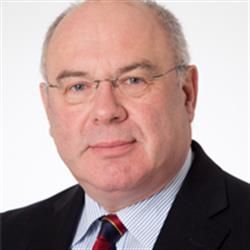


Johann-Philipp Dilo

Dilo Group is quite satisfied with the move to open its own sales and service centre, Dilo India Pvt Ltd, in Gurugram. I have the impression that demand from India is increasing and with rising interest to invest in state-of-the-art equipment.
Our major market in Asia is China, which has a considerable share of our total sales volume. India has a long tradition of producing general and classical textiles made on yarn-based technologies. In the non-wovens sector, there is still a lot of room for further growth and for investments in high-production, high-quality lines that produce quality non-woven products.
I am aware of a programme and financial aid in India, particularly for manufacturing businesses. Therefore, Indian investors of machinery from abroad can file their application for financial aid from the Indian government.
Generally speaking, needled non-wovens are growing at a rate of 5 per cent and more per year worldwide. The top five sectors are technical applications in the car industry, home furnishings and wipes, filtration media, geotextiles and synthetic leather applications.
Of course, there is a lot of competition in our field between European manufacturers and Chinese manufacturers. Nevertheless, for many non-woven producers, particularly in China, high-quality products need to be made based on high-technology machinery.
Our annual share of turnover that goes into the R&D field in some years exceeds around 7 per cent.
This is included in the above answers but needs to be supplemented by our focus on the needling technology based on staple fibre web-forming, which is the most important sector among all dry-laid non-woven technologies. Here Dilo is working particularly on increasing the application of higher needle densities for fine fleeces and fine fibre processing, which we call 'micropunch' as an intensive needling mode. We expect to be competitive in the future to produce medical and hygiene products associated with savings in investment and energy.
During the last three years, DiloMachines contributed about 60 per cent of the total sales, compared to Spinnbau with nearly 25 per cent and Temafa with around 15 per cent. All three companies are valid assets and high-technology contributors to our unique non-woven lines, providing leading equipment on a very high level. There is no bottleneck within our highly efficient manufacturing lines.
New opportunities related to technology features that will lead to new and improved non-woven products and highly efficient production, including features for investment savings, energy and material savings.
Industry 4.0 addresses developments to improve controls and the degree of automation within our technological process, which is associated with improvements to ease operation tasks. This will lead to savings in the area of operating costs. In this regard, Industry 4.0 can be called 'smart', if the mentioned features make life easier to the manufacturer. Our Industry 4.0 features are based on what Siemens has created as a platform for software design and cloud storage on the basis of our own engineering features, which include condition monitoring, manufacturing monitoring, maintenance management, quality monitoring and 'smart start' as a feature to reduce manual interfering during start-up of the line. Additionally, 'DI-Lowatt' is a feature that can reduce energy consumption. All aspects are related to simpler operation, more control and data of the economics and technical condition of the lines.
In 2015, our group increased the sales volume from around €80 million to €100-110 million, which was a considerable growth rate. This was a phase where capacity constraints were tested in a state near to overheating. Currently, the world economy is cooling off in some areas and can be considered going back to normal. Dilo Group is confident that in the long-term, growth in the demand of staple fibre non-wovens with an emphasis on needled non-wovens will continue. (HO)
DISCLAIMER: All views and opinions expressed in this column are solely of the interviewee, and they do not reflect in any way the opinion of technicaltextile.net.